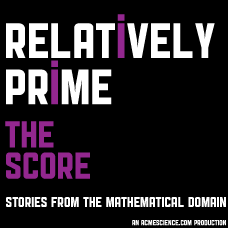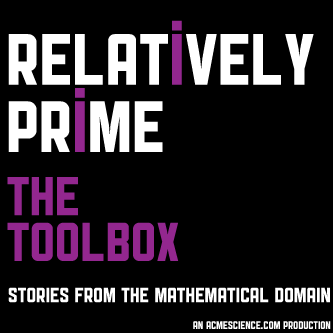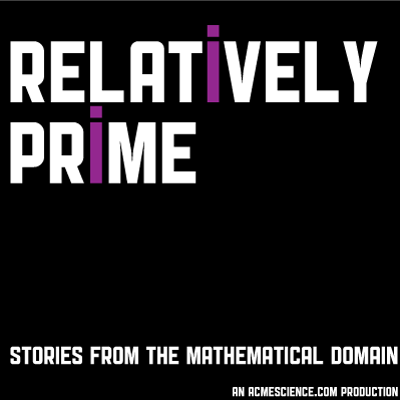![]()
The Lexicon
Download the Episode
Subscribe: iTunes or RSS
The Three R’s, Reading Writing and ’Rithmetic, have formed the basis of formal education for centuries, at least since they were mentioned by Sir William Curtis in 1795, even if he probably used Reckoning instead of ‘Rithmetic. Most of the time though the three R’s can be simplified down even further to the two Glyphs, Letters and Numbers.
For most people ‘Rithmetic or reckoning or mathematics or what ever you want to call it, falls directly under the umbrella of numbers. That is not incorrect. Numbers are very much mathematics brand. Numbers are how mathematics is represented to children from a young age and when you show an aptitude for the subject you are often branded a numbers person. There is even a youtube channel featuring videos about cool mathematics called Numberphile.
But mathematics is more than numbers, and before you go making a joke about how of course it is otherwise we could never solve for x, mathematics is more than individual letters too. Letters, and that thing you get when you put a bunch of letters together and make them into words and then you take those words and you put them together according to some set of rules called language, plays a very important role in mathematics. This episode of Relatively Prime, The Lexicon, explores this role.
The Trans-Atlantic Battle
Lynne Murphy is an American born, University of Sussex employed linguist. This made her the perfect person to talk to about the linguistic fight which destroys more Anglo-American mathematical friendships than which type of breakfast pastry to serve at a conference: Is it Math or is it Maths? (Ed. Note: It is math, I do not care at all what the story actually concludes)
Digging Down to the Roots
One of the things about the language of mathematics is a lot of it comes from language, like from the languages that we speak. To be fair not the actual languages we speak, at least not that we speak anymore. Unless you just happen to be a scholar of Greek, Latin, or Arabic.
This is where Anthony Lo Bello’s Origins of Mathematical Words: A Comprehensive Dictionary of Latin, Greek, and Arabic Roots comes in. Samuel was joined by Anthony for a conversation about the dictionary and some of the origins therein.
Words’ Younger Sibling
A discussion of mathematical language which only touched on mathematical words would be really unsatisfying. It would probably feel like only one half of a dialogue. This is of course because it would be skipping over half of what constitutes mathematical language, it would be skipping over symbols.
Today symbols are just as much part of the language of mathematics as words. This is a surprisingly recent development. For example, when Algebra was first being developed it was entirely in prose. Joseph Mazur wrote about how symbols were developed and integrated into mathematics in his book Enlightening Symbols and he spoke to Samuel about the evolution of symbols and how they have changed mathematics.
A Train Left Station U Traveling 40 mph…
There are two words which can elicit a groan in almost any mathematics classroom, word problem. Thankfully this does not have to be the case. Tharanga Wijetunge and Kirthi Premadasa are here with the solution. Their research has shown that using different language to frame the problems can help students not only enjoy the problems more, but also better recall the mathematics.
No Words at All
Tim Chartier is a person who spends half of his life trying to find stories within mathematics and the other half telling those stories in as many ways as possible. While this would be a hard enough task if Tim just wrote books, made videos, and gave podcast interviews. All of which he does, but Tim, along with his wife, have gone one step farther and now tour the world tell mathematical stories without any words at all. That is right, they do mathematical mime.
Mime-matics – The Plunger from Tim Chartier on Vimeo.
Mime-matics – the infinite rope from Tim Chartier on Vimeo.
Mime-matics – The Tube (with Topology discussion) from Tim Chartier on Vimeo


